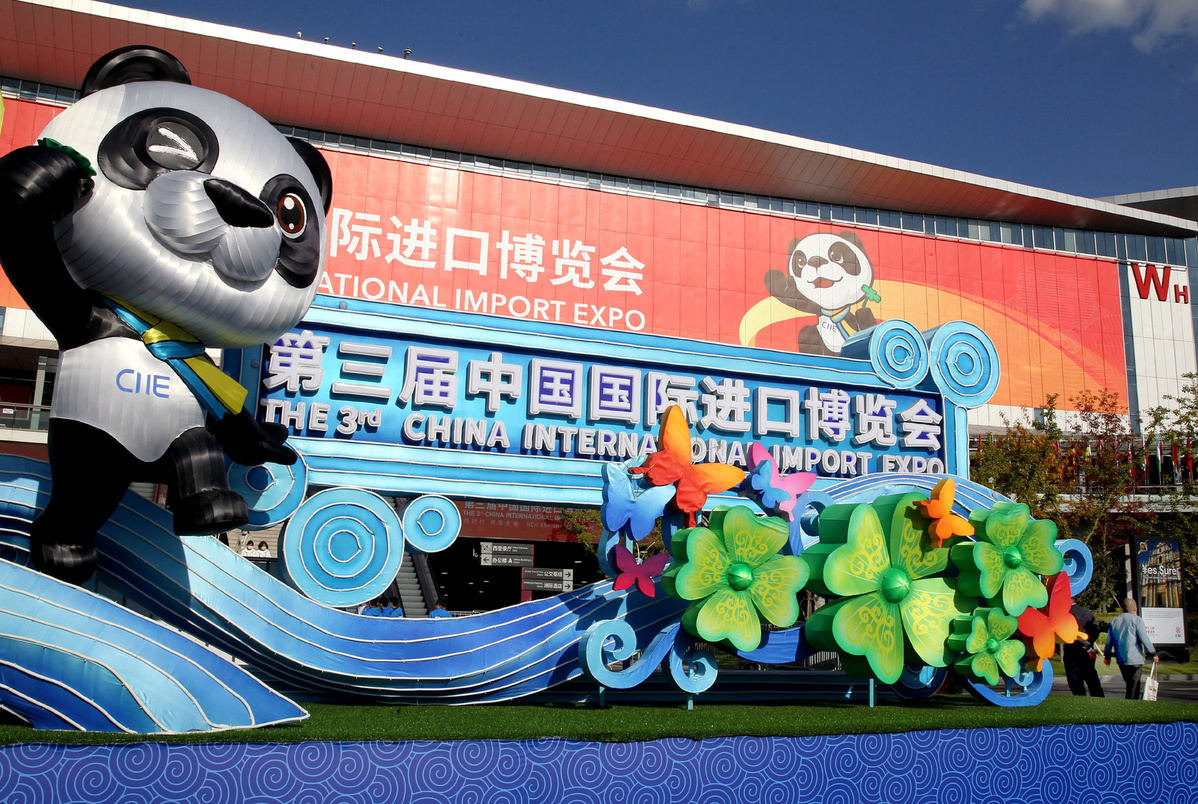
Photo taken on Nov 3, 2020 shows mascots of the 3rd China International Import Expo (CIIE), in East China's Shanghai. (Photo: Xinhua)
The Chinese market has become even more attractive to companies in Central Asia, and the China International Import Expo, or CIIE, provides an opportunity that businesses from Kazakhstan can't afford to miss, Kazakh officials and business leaders said.
"CIIE 2020 is one of the most popular B2B (business to business) trading marketplaces today, and it is particularly important for the international markets amid the global pandemic," Kazakh Minister for Trade and Integration Bakhyt Sultanov said.
During the exhibition in Shanghai, Kazakh companies have been able to find business partners in China, Sultanov said. The CIIE, which ends on Tuesday, is helping to attract more interest in Kazakh products, he said.
The minister said 35 companies from Kazakhstan, covering eight categories in the food industry, are participating in this year's exhibition. It has been underway since Nov 5.
The Kazakh authorities said exports of food products to China have jumped in the past four years, from $31 million in 2015 to $146 million in 2019.
In particular, the demand for organic food products from Chinese consumers has increased tremendously in recent years, said Ayan Yelenov, chairman of the Kazakhstan Foreign Trade Association. Chinese are keen on sauces, milk and other beverages, Yelenev said.
Kazakhstan's Eurasia Investment is one of the 35 companies from the Central Asian nation that are participating in the exhibition. The company owns a dairy factory that produces 60 tons of camel milk powder and 60 tons of mare milk powder every year.
Huge potential
Kairzhan Meirambekov, deputy general manager of Eurasia Investment, said the company opened a camel milk powder store last year at the China-Kazakhstan Horgos International Border Cooperation Center. Its sales in the last 12 months before the CIIE were 600 million tenge (about $1.4 million).
"The success makes us feel the huge potential of the Chinese market and strengthens our determination to dive into the Chinese market," said Meirambekov, adding that, due to the pandemic, the Kazakh side of the Horgos center has been closed since January.
On Jan 29, China's General Administration of Customs approved Kazakh camel dairy products for the Chinese market. Three Kazakh enterprises, including Eurasia Investment, are among the first batch of companies to gain export licenses.
"It's a rare and delightful opportunity that the CIIE is being held as scheduled despite the pandemic," Meirambekov said.
"For the dairy industry of Kazakhstan, the Chinese market offers a huge opportunity. Chinese consumers are getting to know camel milk powder, and the market size is developing."


